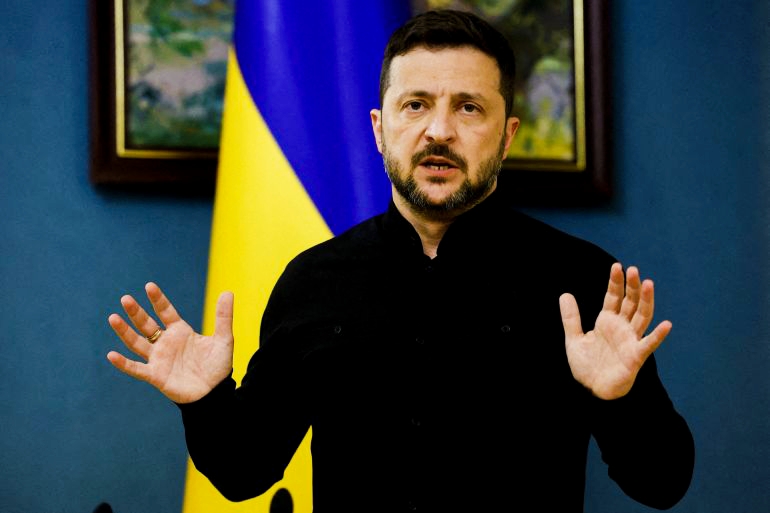Ukrainian President Volodymyr Zelensky emphasized yesterday, Friday, that the responsibility to end the war lies with Russia, confirming that Moscow is the one who ignited this conflict, and it must put an end to it.
In statements published on his account on the "X" platform, Zelensky said: "Russia targeted Sumy, Zaporizhia, Kherson, and Dnipro on the day of the negotiations in Alaska, which proves that it continues its aggression despite talks of peace."
This comes at a time when a meeting described as historic is taking place between U.S. President Donald Trump and his Russian counterpart Vladimir Putin in Alaska, amid international anticipation for the results of this unprecedented summit.
Zelensky, who was absent from this prominent summit, revealed that he recently held consultations with the United States and European countries about ways to reach a real settlement of the conflict.
He confirmed: "We discussed with our partners what could really be effective, and we clearly stated that everyone needs a fair end to this war. Ukraine is ready to work with the utmost seriousness to end the war, and we rely on a strong position from the United States."
The Ukrainian president added in a clear message: "I rely on Trump to end this war."
On the other hand, Russia insists on strict conditions for any settlement, the most prominent of which is Ukraine's recognition of the annexation of four Ukrainian regions - Kherson, Luhansk, Zaporizhia, and Donetsk - even though Russian control over them is still incomplete.
Moscow also continues to demand the annexation of the Crimea Peninsula, which it has controlled since 2014, and insists on stopping Western arms shipments to Ukraine, and Kyiv abandoning its efforts to join NATO.
In contrast, Ukraine rejects those conditions and insists on an unconditional ceasefire - on land, at sea, and in the air - as a fundamental requirement to begin any peace negotiations. It also demands future security guarantees to protect its sovereignty and independence.
Field developments and political negotiations indicate that the road to peace remains complicated, with each party sticking to its demands, while the international community continues to seek a fair and sustainable exit to this conflict that has entered its fourth year.

